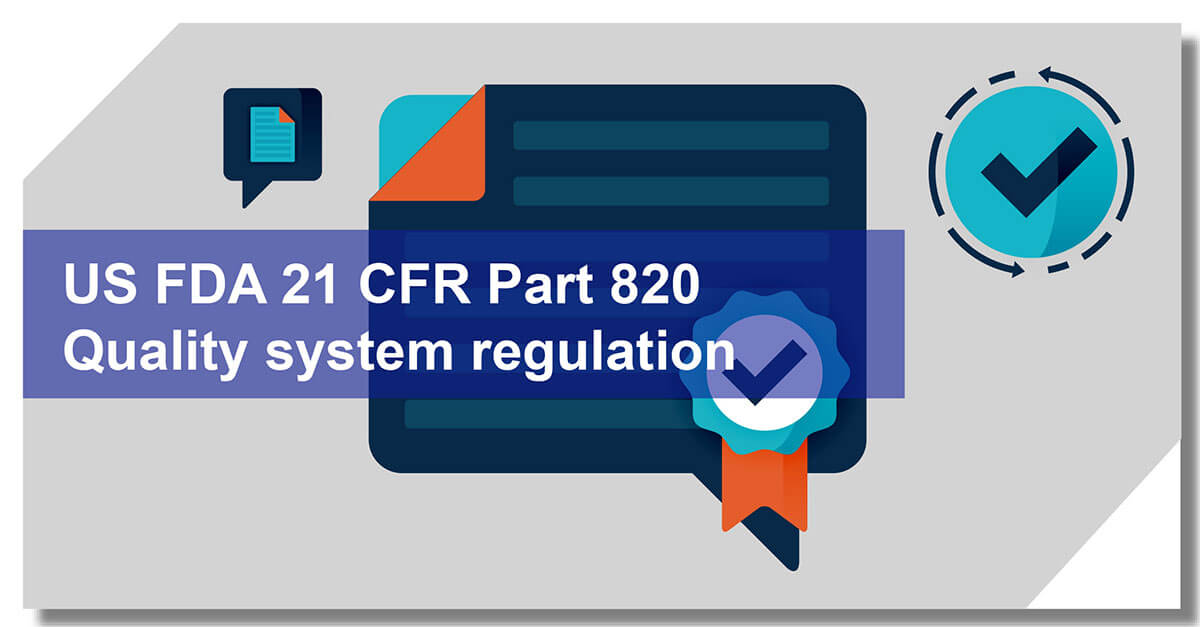FDA 21 CFR Part 820 Quality System Regulation Consultant in the US
Ensure FDA Compliance and Build a Robust Quality Management System
The FDA 21 CFR Part 820 Quality System Regulation (QSR) outlines the essential requirements for medical device manufacturers in the United States to maintain product quality, safety, and effectiveness. Compliance with these regulations is mandatory for any manufacturer looking to market medical devices in the U.S.
At Operon Strategist, we specialize in helping medical device companies achieve full compliance with FDA 21 CFR Part 820 through expert consulting, ensuring your Quality Management System (QMS) aligns with regulatory expectations.
What is FDA 21 CFR Part 820?
21 CFR Part 820 is the FDA’s Quality System Regulation (QSR) for medical device manufacturers operating or marketing products in the United States. It outlines the current good manufacturing practices (CGMP) that must be followed to ensure the safety, effectiveness, and quality of medical devices.
While ISO 13485 provides a global QMS standard, 21 CFR Part 820 is a regulatory requirement in the USA, making compliance critical for market entry and post-market success.
Who Needs to Comply With the FDA QSR?
Any medical device manufacturer or organization that outsources manufacturing activities must implement a QMS in accordance with 21 CFR Part 820. Whether you handle design, post-marketing activities, or full-scale production, compliance with FDA QSR is mandatory.
What Are the Steps to Achieve 21 CFR Part 820 QMS?
- Understand the Regulation
Familiarize yourself with FDA 21 CFR Part 820 requirements and expectations. - Implement a Quality Management System (QMS)
Develop QMS policies, SOPs, and documentation covering all design, manufacturing, control, and distribution processes.
Looking For 21 CFR Part 820 Regulatory Consultation?
- Conduct Internal Audits
Perform regular internal audits to identify gaps, assess compliance, and implement corrective actions. - Employee Training
Train personnel on QSR requirements, SOPs, and job-specific compliance responsibilities. - Establish Corrective and Preventive Actions (CAPA)
Implement CAPA processes to resolve nonconformities and prevent recurrence. - Monitor and Measure Effectiveness
Continuously track QMS performance and ensure ongoing improvements. - Obtain Certification
Undergo third-party audits to verify 21 CFR Part 820 compliance and receive certification.
Why is FDA QSR Compliance Important?
Failure to comply with 21 CFR Part 820 can result in:
- FDA warning letters and import alerts
- Product recalls and enforcement actions
- Denial of 510(k), PMA, or De Novo applications
- Loss of business credibility and revenue
Implementing a compliant QMS improves product quality, reduces risk, and accelerates your path to the U.S. medical device market.
What Are the FDA Requirements of 21 CFR Part 820 Quality System Regulation?
- Management Responsibility – Implement a quality policy, management review system, and organizational structure to ensure QMS effectiveness.
- Quality Audits – Conduct regular internal audits and maintain audit records to demonstrate compliance.
- Personnel Requirements – Ensure trained staff manage compliance processes and mitigate risks.
The FDA regularly inspects manufacturing facilities to verify 21 CFR Part 820 compliance. Noncompliance may lead to FDA Warning Letters, recalls, or penalties.
FDA QSR vs. ISO 13485: Key Differences
While FDA QSR and ISO 13485 share similarities, they have distinct differences:
- FDA QSR (21 CFR Part 820) – U.S.-specific, mandatory for manufacturers selling in the United States.
- ISO 13485 – International quality standard, adopted globally but not country-specific.
Both focus on medical device quality and compliance, but FDA QSR emphasizes post-market surveillance, labeling, and regulatory oversight.
How QSR Compliance Is Enforced by the FDA
- Scheduled & Surprise Inspections – FDA audits manufacturers to ensure QSR compliance.
- Form 483 Observations – Issued when noncompliance is detected, requiring corrective actions.
- Pre-market Compliance – Class I and II devices must meet QSR requirements before market entry.
Request Expert Support Now
Why Choose Operon Strategist?
- 10+ Years of Experience in Global Medical Device Compliance
- Hands-On Support from Gap Assessment to Audit Readiness
- Deep Expertise in 21 CFR Part 820, ISO 13485, FDA 510(k), and Design Control
- End-to-End Consulting for Startups, SMEs, and Large Manufacturers
- Results-Driven Approach Focused on Compliance + Market Success
FAQs
What is risk under 21 CFR Part 820?
The main risk associated with non-compliance with 21 CFR Part 820 is the potential for compromised patient safety and product effectiveness. It is crucial for medical device manufacturers to adhere to 21 CFR Part 820 to mitigate risks and ensure the safety and effectiveness of their products.
Why 21 cfr part 820 quality system regulation is require for medical device
21 CFR Part 820, also known as the Quality System Regulation (QSR), is required for medical devices to ensure that they are manufactured, designed, packaged, labeled, and distributed in a safe and effective manner. The regulation sets forth comprehensive requirements for quality management systems that medical device manufacturers must follow.
